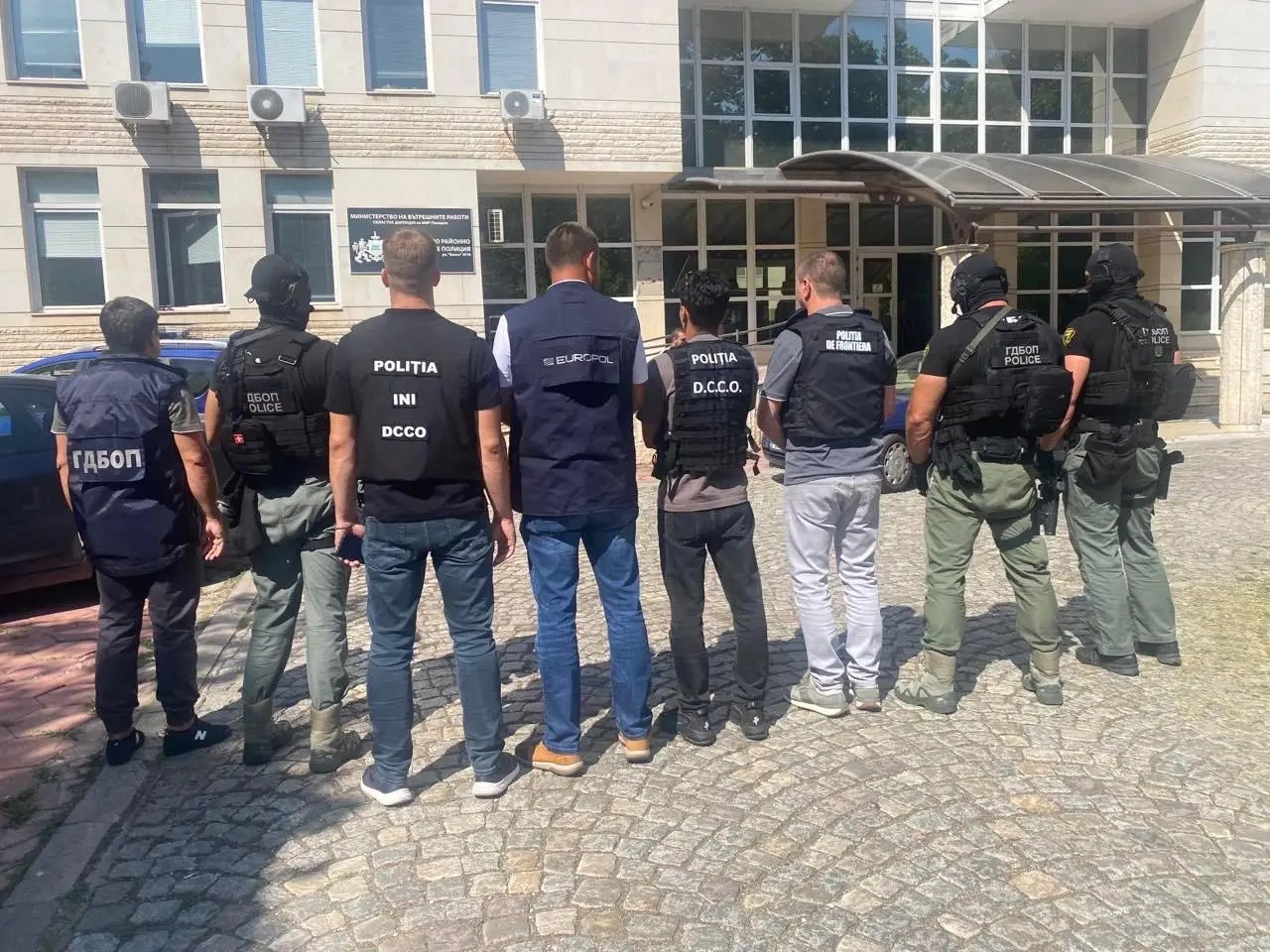The Bulgarian authorities have successfully dismantled a criminal gang involved in large-scale migrant smuggling activities across the Western Balkans.
The action carried out on August 19, led to the arrest of eight suspected members of the gang, including four individuals identified as “High Value Targets” who played a leading role in the illicit operations.
Extensive Raids and Seizures
The coordinated enforcement action took place in the region of the Bulgarian city of Plovdiv, where the authorities raided 15 locations.
Europol experts, as well as law enforcement officers from Romania and Moldova, provided on-the-ground support to their Bulgarian counterparts in executing the operation.
ALSO READ: SEBI Launches Cyber Capability Index to Boost Market Security!
As a result of the searches, the law enforcement agencies seized a significant amount of evidence, including 13 mobile phones, a weapon, ammunition, and documents related to the smuggling of migrants into and through Bulgaria.
This operation was part of a broader Europol-coordinated regional Operational Taskforce based in Sofia, which focuses on disrupting criminal networks engaged in migrant smuggling activities from Turkey across the Balkan route towards Western Europe.
A Complex Smuggling Enterprise
The investigation revealed that the migrant smuggling operation was a well-organized criminal enterprise, involving a hierarchy of leaders, organizers, and facilitators from various nationalities.
The main leaders were Syrian and Jordanian nationals, who coordinated the criminal activities with other smugglers located in Turkey and along the Western Balkan route.
Bulgarian nationals played a crucial role in the logistics of the operation, responsible for finding and purchasing vehicles used to transport the migrants, as well as registering them under the names of other individuals in exchange for a small sum of money.
The gang also employed Moldovan drivers, who were recruited over the internet, to transport the migrants from the Turkish-Bulgarian border to the next border crossing points.
ALSO READ: TRAI’s Masterstroke on Phishing Scams
Migrant Smuggling Modus Operandi
The irregular migrants would initially cross the border between Turkey and Bulgaria on foot, using the services of guides provided by the organizers in Turkey. After entering Bulgaria, they were met by the Moldovan drivers, who transported them to the Bulgarian-Serbian or Bulgarian-Romanian border using the vehicles and GPS coordinates provided by the gang.
The drivers communicated with other members of the gang using mobile applications with disappearing messages, and they received around €100 per person transported, earning between €700 and €1,000 per journey. The migrants paid a significant sum for the smuggling services, ranging from around €6,000 to be smuggled into Bosnia and Herzegovina, to more than €4,000 to be transported to Serbia.
Europol’s Crucial Role
Europol’s European Migrant Smuggling Centre has been supporting the work of the regional Operational Taskforce since its establishment, playing a crucial role in the investigation. Extensive operational analysis was conducted to identify the various targets and map out their criminal activities, and Europol also facilitated the coordination between the law enforcement agencies involved in the operation.
During the action day, two Europol experts were deployed to Sofia to provide real-time cross-checks against Europol’s databases and assist the Bulgarian authorities in their enforcement measures.
The operation involved a range of law enforcement agencies from Bulgaria, Moldova, and Romania, including the General Directorate Combating Organised Crime, National Police, Border Police, State Agency National Security, Gendarmerie, and various prosecutor’s offices.
This coordinated crackdown on the sophisticated migrant smuggling gang represents a significant blow to the criminal network’s operations and a testament to the effectiveness of international law enforcement cooperation in disrupting transnational organized crime.



